During
the last four months of 2015 the Spanish State Supreme Court
condemned three associations of Cannabis consumers for alleged
offences against public health. In its judgements the Court concluded
the cultivation and distribution organised by Ebers
Hemp
Users and Study Association and Pannagh Association of Cannabis Users
(Bilbao), along with Three Monkeys Cannabis Association (Barcelona)
did not fit into the "not punishable" concept of collective
cultivation (Cannabis
Social Clubs)
for personal consumption, which until now had been considered by many
Spanish local courts as an argument to absolve these and other
associations.
 The
condemnation of Pannagh, a standard-bearer for the Cannabis movement
and its associations in Spain, is a significant blow. It was the
first acquittal
by
the Provincial Court of Biscay (Basque Country) in April 2007 that
gave a boost to Cannabis consumers across Spain who were seeking ways
to develop their activities within a legal framework. It led to the
creation of hundreds of associations throughout the country
(especially in Catalonia and the Basque Country) where Cannabis could
be cultivated and distributed to members under the watchful eye of
authorities. However, in November 2011, police entered Pannagh
headquarters (Bilbao) and arrested five of their members, including
President Martín Barriuso. The police intervention netted 75 kg of
Cannabis, the annual harvest for its 300 members. In April 2015, the
Provincial Court of Vizcaya acquitted, after a judicial process
lasting almost 3½ years, the association Pannagh. “No
attempt to traffic was established, nor any intention to promote,
favour or facilitate illegal 'drug' consumption, nor to spread it to
third parties. There was no crime against public health, so we have
been acquitted”,
said Barriuso. “It
was not proven that we were promoting anything illegal”.
The
condemnation of Pannagh, a standard-bearer for the Cannabis movement
and its associations in Spain, is a significant blow. It was the
first acquittal
by
the Provincial Court of Biscay (Basque Country) in April 2007 that
gave a boost to Cannabis consumers across Spain who were seeking ways
to develop their activities within a legal framework. It led to the
creation of hundreds of associations throughout the country
(especially in Catalonia and the Basque Country) where Cannabis could
be cultivated and distributed to members under the watchful eye of
authorities. However, in November 2011, police entered Pannagh
headquarters (Bilbao) and arrested five of their members, including
President Martín Barriuso. The police intervention netted 75 kg of
Cannabis, the annual harvest for its 300 members. In April 2015, the
Provincial Court of Vizcaya acquitted, after a judicial process
lasting almost 3½ years, the association Pannagh. “No
attempt to traffic was established, nor any intention to promote,
favour or facilitate illegal 'drug' consumption, nor to spread it to
third parties. There was no crime against public health, so we have
been acquitted”,
said Barriuso. “It
was not proven that we were promoting anything illegal”.
However,
the Public Prosecutor’s office lodged an appeal that the Supreme
Court partially upheld. Along with the President, the Treasurer and
Secretary were accused of drug trafficking. The Prosecutor called for
sentences of 4½ years along with an additional 1½ years for
belonging to a 'criminal' group. Members of Pannagh find the
reasoning behind the ruling “full
of errors and blatant contradictions” and
believe it does not consider crucial data that was “relevant
for the defence”.
Pannagh alleges despite the fact its activity was deemed to be
criminally irrelevant by the Provincial Court of Biscay (in 2006) and
by the Court of Álava (in 2012), both cases ended with the return of
seized Cannabis to Pannagh. The ruling states the accused parties
acted in a way that was “encouraged
by the unfounded hope that their actions could be tolerated or
believing that some judicial authorities could accept the thesis
putting forward the criminal irrelevance of the actions”.
However, “those
sentenced did not have an ‘unfounded hope’ but rather the
certainty, based on previous legal proceedings, that their conduct
was not criminal".
This
result is consistent with an earlier ruling handed down on Ebers in
which the Supreme Court had ruled and the Public Prosecutor had
appealed. The appeal was upheld and five members of that association
were sentenced, as perpetrators of the crime of illegally growing
'drugs', to jail time ranging between 3-8 months. An official
announcement by the EUSFAC (Federation of Associations of Cannabis
Users in the Basque Countries) was released in October, 2015 in
response to the harsh sentencing; "We are disappointed
and perplexed with a legal decision that harms the public health that
it claims to protect. This ruling indirectly condemns, stigmatises
and marginises hundred of thousands of people that use Cannabis
throughout the state".
Along
with similar charges laid against Barcelona's Three Monkeys, the
Ebers charges are seemingly paving the way towards criminalisation of
the activity of all Cannabis social clubs in Spain, as according to
the Supreme Court’s Criminal Chamber, the structuring and
functioning of these two clubs went beyond the limits of shared
consumption and infringed upon public health, but many of the
allegations in the ruling contradict those made by the Provincial
Court. While the Provincial Court ruled there was evidence of
“management of
the delivery of substances and of the person carrying it out”,
according to the Supreme Court there was “a
lack of control”.
Likewise, the entity went from being comprised of members that
accepted “growing
for private consumption”,
to “a nucleus of
people” who
“organise the
association’s structure; they provide and prepare management,
supplies, distribution and growing ... and they make these structures
serve a wide and indiscriminate group of users".

The
sentenced parties intend to lodge a suit for nullity of proceedings
to the Supreme Court and a subsequent appeal to the Constitutional
Court, as they believe that their “right
to the presumption of innocence, to a trial with due processes and
proportional sentences” has
been violated. They even propose submitting an appeal to the Court of
Human Rights in Strasbourg if necessary. “The
Pannagh association want to denounce the fact that several of the
association’s workers have been punished for activities that, as
shown in the trial, and as outlined in the revoked sentence, were the
initiative and responsibility of all of Pannagh’s members,
according to its statutes and through an assembly agreement”.
The association also makes it clear they will not be intimidated or
throw in the towel, as this is clearly “a
political ruling, aimed at dismantling the social reality of Cannabis
within the Spanish state”.
 “At
Pannagh we encourage people to continue fighting for a change to drug
policy that puts an end to the unfair current situation and to keep
driving forward the promising debate about Cannabis regulation that
is taking place in a large part of the world, a debate that Pannagh
has tried to contribute to since its establishment in 2003”.
This is the concluding phrase of the announcement
issued
by Pannagh after the ruling from the Supreme Court that partially
upheld the prosecutor’s appeal against the ruling of the Court of
Bizkaia that absolved them of the crime of drug trafficking for
growing Cannabis for their members.
“At
Pannagh we encourage people to continue fighting for a change to drug
policy that puts an end to the unfair current situation and to keep
driving forward the promising debate about Cannabis regulation that
is taking place in a large part of the world, a debate that Pannagh
has tried to contribute to since its establishment in 2003”.
This is the concluding phrase of the announcement
issued
by Pannagh after the ruling from the Supreme Court that partially
upheld the prosecutor’s appeal against the ruling of the Court of
Bizkaia that absolved them of the crime of drug trafficking for
growing Cannabis for their members.
The
ruling has serious consequences for the pioneering association from
Bilbao, with the President and Secretary sentenced to 1 year, 8
months in prison and fined 250,000 euros each. Two other members will
have to serve 6 months, but the Treasurer was absolved through an
omission by the Court. Pannagh believes “this
is a political sentence, aimed at dismantling the Cannabis
association movement and based on a completely distorted view that is
behind the times in terms of the social reality of Cannabis in the
Spanish state”.
The Federation of Cannabis Associations and other organisations have
already shown their support to the members.
In
2016, Spain will attain its 50th anniversary of prohibitionist
legislation, which commenced with the ratification on 3 September,
1966, of the UN Single Convention on Narcotic Drugs of 1961. Unlike
other countries though, the Spanish Supreme Court decided in 1974
that mere consumption and possession of 'drugs' for personal use
should not be punished by criminal law. Consistent with that initial
decriminalisation of consumption and possession not intended for
trafficking, the Supreme Court also decided that so-called collective
cultivation or the providing of a 'drug' to an habitual consumer
cannot be considered a crime when this serves compassionate purposes,
such as to alleviate any withdrawal.

In
2001, legal experts at the request of the Drugs Commission of the
Regional Government of Andalusia, produced a report in which a set of
criteria were established that would make it possible to set up
establishments in which Cannabis could be obtained for both
recreational and therapeutic purposes while respecting the legal
framework. "These
initiatives would have a place in our legal system if configured as
centres that would be closed to the public but where access would be
restricted to Cannabis consumers".
The report provided an interpretation, according to which, people who
consume Cannabis may use their constitutional right to associate, in
order to organise the cultivation of their supply without having to
recur to the illicit market. The association rents a space and grows
plants for the members, according to their estimated consumption in
order to avoid a surplus. Expenses incurred by the association (rent,
equipment, travel, administration etc.) are added and divided by the
total harvest so the contribution each is supposed to pay (calculated
in euros / g) covers the costs in proportion to his/her consumption.

Spanish
Cannabis associations are not meant to sell Cannabis, because they do
not own the plants, but are care-takers of what remains the property
of the members. They are not meant to make profit, but to provide a
service to their members, independent of the size of the harvest.
What counts are the benefits enjoyed by the members: no uncertainty
about quality or possible adulteration of the product; with a
reliable source of counselling and information on Cannabis; a
transparent model for the provision of Cannabis as a first step
towards a true normalisation.

Due
to the absence of any national political initiative to create a legal
framework to regulate the model, the newly created associations
started their own interpretations of the original code of conduct
developed by Pannagh and other pioneer activists. In the margin of
the non-profit distribution model some people could not resist the
temptation to replace transparency and accountability by commercial
strategies in order to obtain a quick benefit from what was conceived
as a new legal market in Cannabis. In many cases, associations became
clubs and members became customers. In cities like Barcelona or San
Sebastián, local politicians started to develop a regulatory
framework for clubs to operate regardless of the approval of the
central government in Madrid. Investors from around the world arrived
in order to ’buy a Cannabis club’, attracted by websites
with
promotional texts such as: "since
the opening of a new generation of Cannabis clubs and the appearance
of a more demanding consumer, Barcelona has stepped ahead of
coffee-shops from Amsterdam. Nowadays, some dispensaries in Barcelona
have nothing to envy the medical marijuana* dispensaries from
Colorado and California".
While
for the members of Pannagh, forming a Cannabis Social Club
represented a necessary act of civil disobedience intended to
challenge an unjust law and provoke discussion in society about the
urgent need for change, for the new generation it seems more and more
a financial investment. Consequently the movement of Spanish Cannabis
activists, a tiny group of people who struggled for more than 10
years to obtain this remarkable progress, became affected by high
tempered conflicts over the strategy to run. The judgement of the
Supreme Court, inspired by a last convulsion of conservative Spain to
stop the process towards Cannabis regulation, is expected to have
drastic consequences in the short term, as many of the legally
established clubs are expected to close in order to avoid
prosecution.
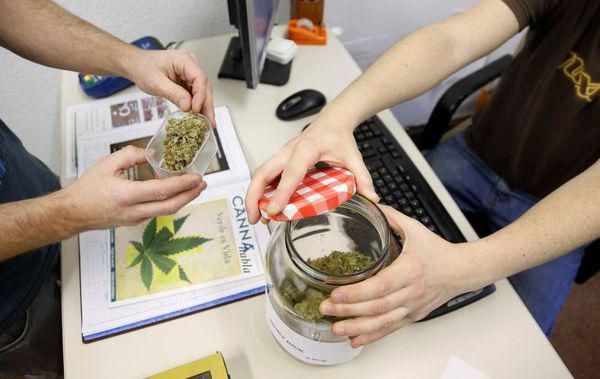 Meanwhile
everybody knows in the longer term, central powers in Madrid cannot
permit themselves to enforce a highly unpopular total ban on
Cannabis, among other substances, because of the ammunition this may
give to the call for regional autonomy. A real step forward for the
entire country in the form of a new law is unavoidable, though it
seems unlikely this will happen any time soon, due to the
unprecedented political crisis that arose in Spain after the
inconclusive
general election on
20 December. The case will also be of great significance for the
debate in Europe. After the first police operation against Pannagh in
2005, the Italian MEP Giusto Catania put this question to the
European Commission: “If
the Spanish legislation allows an association of users of Cannabis to
operate, and if there is a possibility of cultivating Cannabis plants
legally, provided it is done without commercial purposes, how come
the Spanish justice proceeds against a legally constituted
association that cultivates for its own use? Is this not an
inconsistency which undermines the principle of legal security and
the right of association?”.
Meanwhile
everybody knows in the longer term, central powers in Madrid cannot
permit themselves to enforce a highly unpopular total ban on
Cannabis, among other substances, because of the ammunition this may
give to the call for regional autonomy. A real step forward for the
entire country in the form of a new law is unavoidable, though it
seems unlikely this will happen any time soon, due to the
unprecedented political crisis that arose in Spain after the
inconclusive
general election on
20 December. The case will also be of great significance for the
debate in Europe. After the first police operation against Pannagh in
2005, the Italian MEP Giusto Catania put this question to the
European Commission: “If
the Spanish legislation allows an association of users of Cannabis to
operate, and if there is a possibility of cultivating Cannabis plants
legally, provided it is done without commercial purposes, how come
the Spanish justice proceeds against a legally constituted
association that cultivates for its own use? Is this not an
inconsistency which undermines the principle of legal security and
the right of association?”.
The
response was very clear: The European Union does not have any
competence on the regulation of activities related to possession and
consumption. EU Member States are obliged by the UN and EU
legislation to prosecute everything that has to do with commercial
distribution of illicit drugs. But this obligation disappears in the
case of cultivation for own use, as this is not covered by the
Framework Decision of the European Council. Cultivation of Cannabis
for personal use is defined by national laws. A similar margin exists
in the UN Single Convention. The Spanish Government, like any other,
is therefore competent to establish its own administrative regulation
for the individual or collective cultivation of Cannabis consumption,
determining the amount of plants that each person may possess,
without violating any international agreement.
In
January 2016, Pannagh published a 'Manifesto Of Support' regarding
the concerning judgements made by the Spanish Supreme Court against
four members of their association for an alleged crime against public
health, highlighting the following;
- the Provincial Court of Biscay stated in their original acquittal that Pannagh is a "legally constituted association" and the confiscated Cannabis was intended exclusively for consumption of members of the association themselves
- the Supreme Court altered the account of the proven facts in order to conclude the existence of criminal offences. Its main argument is that although Cannabis produced by Pannagh was never handed over to non-members, there was a potential risk of leakages to people outside the association by the members.
- the activities of Pannagh have been repeatedly subject to court decisions that have affirmed their legality (Judgment nr. 218/2006 of the Provincial Court of Biscay and nr. 377/2012 of the Court of Álava) both cases ended with the return of seized Cannabis to Pannagh.
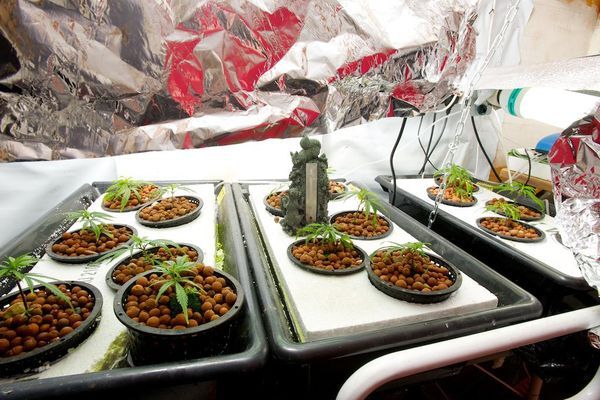 These
resolutions have been widely disseminated through the media and are
well known, just as the activities of Pannagh, which have clearly
been allowed for years by various public institutions. Therefore,
instead of "unfounded hope", they were rather driven
by an informed conviction, apparently shared by several courts of
justice.
These
resolutions have been widely disseminated through the media and are
well known, just as the activities of Pannagh, which have clearly
been allowed for years by various public institutions. Therefore,
instead of "unfounded hope", they were rather driven
by an informed conviction, apparently shared by several courts of
justice.Helena Echeverri, a criminal lawyer who has spent her career defending the Cannabis sector, analysed the scenario that Cannabis Social Clubs face in Spain; the Supreme Court's recent negative rulings establish jurisprudence and prevent associations with large numbers of members from dispensing Cannabis. The solution involves sidestepping the courts and advocating for change at the polls. However, one thing seems clear for now, Cannabis Social Clubs are absolutely illegal and those in violation of the High Court's requirements will be moved against.
 The Spanish Supreme Court has opted for a very restrictive interpretation of the rules regarding shared consumption, which hinders the activity of clubs that currently exist. The court has outlined parameters in order to determine if the activity of a Cannabis association is criminal or not. These rules will be very useful for Provincial Courts which usually have widely varying opinions when it comes to dealing with these matters. However, in the end, everything will depend on the analysis of each specific case.
The Spanish Supreme Court has opted for a very restrictive interpretation of the rules regarding shared consumption, which hinders the activity of clubs that currently exist. The court has outlined parameters in order to determine if the activity of a Cannabis association is criminal or not. These rules will be very useful for Provincial Courts which usually have widely varying opinions when it comes to dealing with these matters. However, in the end, everything will depend on the analysis of each specific case.
- The Association must be comprised only of habitual Cannabis users who can show this and; not be open to an indiscriminate number of members. This limitation is aimed at preventing third parties that have nothing to do with the club’s principles from using it illegally.
- Consumption must take place in a closed-off area in order to prevent it from being promoted in public and prevent it from reaching those not members. Meetings must take place between small numbers of users in order for them to be considered a “private affair that is not of a public nature”.
- People associated with the Association must provide identification to prove that they really are habitual Cannabis users.
- Consumption must be immediate in order to ensure the product does not leave the premises and to stop it from falling into the hands of third parties that should not have access.
- The quantity of Cannabis that Associations possess must be “minimal” and suitable for consumption in a single meeting.
- Associations are urged to prevent storing large quantities of the plant as that is considered to be the “seed of danger that the legislator wants to banish” (with regard to the trafficking of drugs).
- The management body of the Association aims to ensure all of the above measures are fulfilled, i.e., they should have the ability to control and fulfil all of the aforementioned requirements.
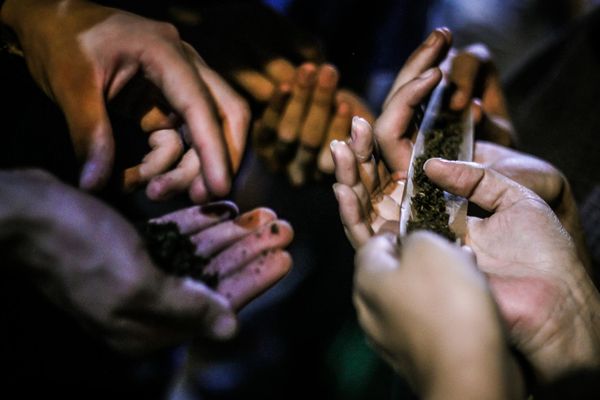 Given that analysis of circumstances will depend on each case, greater precision is needed in order to know the boundaries where the activities of a Cannabis Social Club may or may not constitute a crime. Until there is complete regulation, users will remain defenceless. Spaniards now know it is not legal for a club with a large number of members to grow and dispense Cannabis. Dispensing is considered legal only by associations with small numbers of members, from 10-20 (although the exact number is to be determined by legislators). It is also essential that product not leave the premises since there is a risk of third parties being exposed to it, that establishments harbour no intention of making a profit and that all the requirements specified in the rulings be complied with.
Given that analysis of circumstances will depend on each case, greater precision is needed in order to know the boundaries where the activities of a Cannabis Social Club may or may not constitute a crime. Until there is complete regulation, users will remain defenceless. Spaniards now know it is not legal for a club with a large number of members to grow and dispense Cannabis. Dispensing is considered legal only by associations with small numbers of members, from 10-20 (although the exact number is to be determined by legislators). It is also essential that product not leave the premises since there is a risk of third parties being exposed to it, that establishments harbour no intention of making a profit and that all the requirements specified in the rulings be complied with.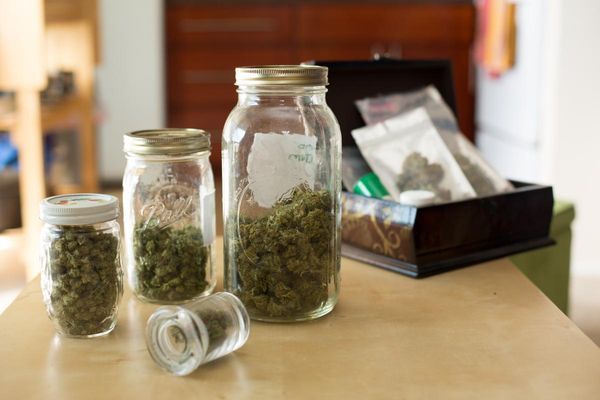 Madrid's La Santa Le Club's case was thrown out and their Cannabis returned, so under Spanish law they may allege a "prohibition error", which means if a judge has previously ruled they were operating properly, there is no reason they should be found non-compliant now. However, in view of the delicate overall situation, the legal recommendation is for associations to assess whether they are properly organised, not open their doors to the police without a search warrant, and get members tested, so that if they later end up in court, they can prove they have been regular consumers. If convicted and subject to a final sentence of more than two years of imprisonment, the judge may waive incarceration if one can present results of such tests and agree to undergo "detoxification".
Madrid's La Santa Le Club's case was thrown out and their Cannabis returned, so under Spanish law they may allege a "prohibition error", which means if a judge has previously ruled they were operating properly, there is no reason they should be found non-compliant now. However, in view of the delicate overall situation, the legal recommendation is for associations to assess whether they are properly organised, not open their doors to the police without a search warrant, and get members tested, so that if they later end up in court, they can prove they have been regular consumers. If convicted and subject to a final sentence of more than two years of imprisonment, the judge may waive incarceration if one can present results of such tests and agree to undergo "detoxification".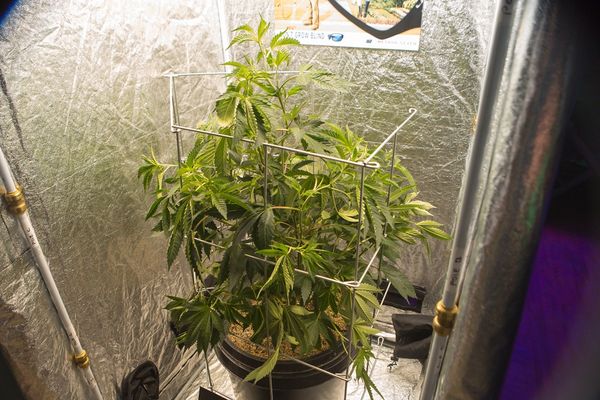 Helena Echeverri has spent years warning people that she did not see a green future, but rather a "very black" one and that the only way to change this was to take the political fight to Parliament, not to the Provincial or other courts. She does not, however, trust any political party. She states the Partido Popular (PP), along with the PSOE, have "pursued the sector" the most and defines them as enemies. The PP has acted in a repressive way to end substance consumption through punishment. An example is the Public Safety Act which punishes not only consumption but cultivation that can be witnessed by third parties. In her opinion, the worst thing is that the Partido Popular "continues to believe that Cannabis is worse than alcohol" and spruiks that "smoking a joint before going to bed is the worst, because you'll end up on heroin, or it will kill neurons".
Helena Echeverri has spent years warning people that she did not see a green future, but rather a "very black" one and that the only way to change this was to take the political fight to Parliament, not to the Provincial or other courts. She does not, however, trust any political party. She states the Partido Popular (PP), along with the PSOE, have "pursued the sector" the most and defines them as enemies. The PP has acted in a repressive way to end substance consumption through punishment. An example is the Public Safety Act which punishes not only consumption but cultivation that can be witnessed by third parties. In her opinion, the worst thing is that the Partido Popular "continues to believe that Cannabis is worse than alcohol" and spruiks that "smoking a joint before going to bed is the worst, because you'll end up on heroin, or it will kill neurons".
As a criminal lawyer she has never seen anyone commit a violent crime (like hitting their partner or stealing) just because they used Cannabis. In contrast, she sees such behaviour every day as a result of alcohol consumption. "But if we were to try to ban it in a country like Spain, many wineries, which constitute a lobby, would thwart it. There are many interests involved .... ". She points out that every prisoner costs taxpayers around 69,000 euros, and most of this country's inmates are in for crimes against public health", change is more necessary than ever. She cites as an example the 'puritan' United States (US) which has nevertheless legalised dispensing in some states. This is a model that Spain might want to consider following, if only because the US is almost always a forerunner.
The Spanish courts have taken a drastic course and the only way to turn things around is at the polls and through the critical thinking capacity of voters, and the Cannabis community. In light of the latest political developments, however, it seems that a positive scenario will take time to materialise. Pannagh is expected to announce its plans to take the case to a higher level, which could be the European Court of Human Rights in Strasbourg. The follow up concerns all those fighting worldwide for regulation that eliminates the current legal uncertainty around cultivation of plants for personal consumption. In any state that calls itself civilised, adults ought to be allowed (under certain conditions such as maximum number of plants or equivalent area for indoor as well as outdoor cultivation) to grow any plants for individual consumption and share this with others.
Adapted from;
ENCOD Bulletin Drug Policies In Europe 31/12/15, Pannagh Supreme Court, Spanish Supreme Court Cannabis Crime, Supreme Court Opens Door to Criminalisation Social Cannabis Clubs, The Pannagh Manifesto, Green Fight Parliament




No comments:
Post a Comment